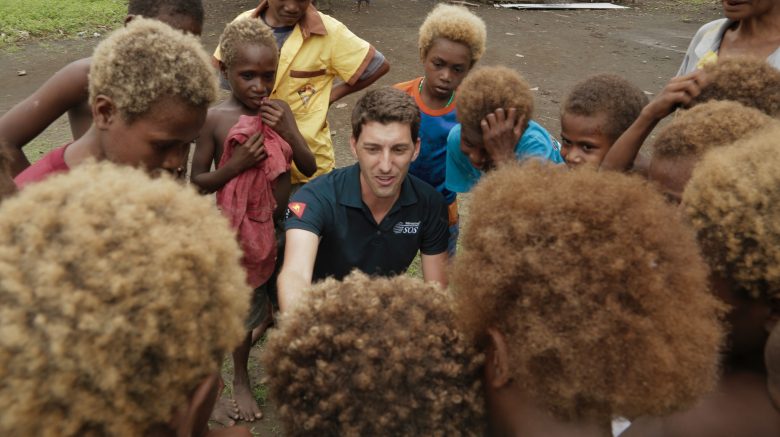“Where the Roads End”, a documentary film that narrates the story of the fight being waged by FLSIDA doctor and researcher Oriol Mitjà against yaws disease, was screened yesterday at the European Parliament in Brussels. The screening was made possible by the support of the Greens-European Free Alliance and the Progressive Alliance of Socialists and Democrats. It was preceded by a brief round table with contributions from both the director of the documentary and Oriol Mitjà himself. The documentary was made with the support of the ”la Caixa” Foundation and was produced by Grup Broadcaster and coproduced by TV3 and Televisión Española.
After a brief welcome address by European Parliament members Ernest Urtasun and Elly Schlein, the director Noemí Cuní talked about the genesis of the project and described a few of the problems that had to be overcome and some of the more satisfying moments along the way. Oriol Mitjà then explained how in 2012, after three years of intense work, he demonstrated, for the first time, that azithromycin—an antibiotic in common use in Western countries—was an effective cure for this neglected tropical disease that affects 40 million people worldwide. Since then, the World Health Organisation has been seeking a massive donation of azithromycin to facilitate a worldwide yaws eradication campaign. Oriol went on to say that the announcement last April that EMS, a Brazilian pharmaceutical company, had pledged to donate the azithromycin needed for the campaign to eradicate yaws by 2020 was an excellent piece of news. Nonetheless, he also emphasised that the task is not finished because the campaign still needs to raise funds to finance the mass administration of the drug to affected communities.
FLSIDA researcher emphasised that it is now an opportune moment for the countries of Europe to shoulder their responsibility for achieving the third sustainable development goal—health and well-being for all—and to prioritise the fight against the neglected diseases that affect the world’s most vulnerable populations. He cited the example of countries such as the United Kingdom and Belgium, which last April pledged resources for the fight against neglected diseases, and he also called upon the European Union to join the fight against neglected diseases through programmes that fund research.
After Oriol finished, the two members of the European Parliament taking part in the discussion responded by undertaking to work to increase the contribution of the European Union to the yaws eradication campaign and to start by organising a meeting with the European Commission’s Directorate-General for International Cooperation and Development. Finally, Lisa Goerlitz from the international development organisation Deutsche Stiftung Weltbevoelkerung (DSW) closed the discussion before moving on to the screening of the documentary.

